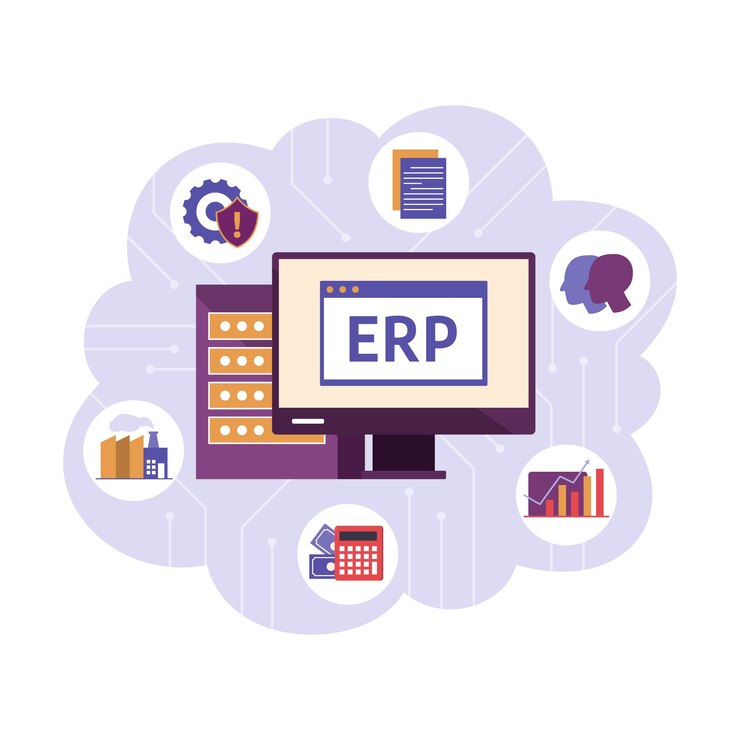
Introduction
In today’s digital economy, implementing an ERP system has become a strategic necessity rather than a luxury. For businesses operating in the UAE’s competitive landscape, choosing the right ERP system in UAE can mean the difference between operational excellence and falling behind competitors.
This comprehensive guide will explore:
✔ Fundamental concepts of ERP technology
✔ Why UAE businesses need specialized solutions
✔ Real-world ERP system examples from leading organizations
✔ Implementation strategies for maximum ROI
By the end, you’ll understand exactly how ERP systems can streamline your operations, ensure compliance, and drive sustainable growth in the UAE market.
What Is an ERP System?
Defining Enterprise Resource Planning
An ERP system is an integrated software platform that connects and automates core business processes across an organization, including:
-
Finance and accounting
-
Supply chain management
-
Human resources
-
Customer relationship management
-
Inventory and warehouse operations
How Modern ERP Systems Work
Today’s ERP solutions offer:
-
Real-time data analytics across departments
-
Cloud-based accessibility from any location
-
AI-powered forecasting for better decision-making
-
Mobile functionality for on-the-go management
The Evolution of ERP Technology
| Generation | Key Characteristics | Limitations |
|---|---|---|
| 1960s-70s | Inventory Control Systems | Single-function focus |
| 1980s | MRP II | Limited integration |
| 1990s | Client-Server ERP | High implementation costs |
| 2000s | Web-Based ERP | Basic analytics |
| Present | Intelligent Cloud ERP | AI-driven automation |
Why UAE Businesses Need Specialized ERP Systems
1. Compliance with UAE Regulations
-
Automated VAT calculations and reporting
-
WPS (Wage Protection System) integration
-
Emiratization tracking capabilities
2. Multi-Currency and Multi-Branch Support
-
AED and foreign currency processing
-
Consolidated reporting across UAE branches
3. Industry-Specific Functionality
-
Retail: POS and omnichannel integration
-
Construction: Project cost tracking
-
Healthcare: Patient management modules
4. Arabic Language Support
-
Bilingual interfaces (Arabic/English)
-
Localized reporting formats
5. Cloud Deployment Advantages
-
Reduced infrastructure costs
-
Automatic software updates
-
Disaster recovery capabilities
ERP System Examples from Global Leaders
1. SAP S/4HANA
✅ Used by: Emirates Airlines
✅ Key Features: Real-time analytics, AI integration
2. Oracle NetSuite
✅ Used by: Careem
✅ Key Features: Cloud-native, multi-subsidiary support
3. Microsoft Dynamics 365
✅ Used by: Al Futtaim Group
✅ Key Features: Power BI integration, modular design
4. Odoo
✅ Used by: UAE SMEs
✅ Key Features: Affordable, user-friendly interface
5. Zoho ERP
✅ Used by: Startup ecosystem
✅ Key Features: CRM integration, mobile access
Key Features of Modern ERP System in UAE
1. Financial Management
-
Automated invoicing and collections
-
Multi-currency general ledger
-
VAT-compliant reporting
2. Supply Chain Optimization
-
Inventory forecasting
-
Supplier relationship management
-
Logistics tracking
3. Human Capital Management
-
WPS-compliant payroll
-
Employee self-service portals
-
Talent management tools
4. Business Intelligence
-
Customizable dashboards
-
Predictive analytics
-
KPI tracking
5. Mobility and Integration
-
Mobile approvals
-
API connectivity
-
IoT device integration
Implementing an ERP System in UAE: Step-by-Step
Phase 1: Needs Assessment
-
Process mapping
-
Gap analysis
Phase 2: Vendor Selection
-
Feature comparison
-
Local support evaluation
Phase 3: Data Migration
-
Legacy system extraction
-
Data cleansing
Phase 4: User Training
-
Role-based programs
-
Change management
Phase 5: Go-Live and Optimization
-
Parallel testing
-
Continuous improvement
Future Trends in ERP Technology
-
AI-powered automation for routine tasks
-
Blockchain integration for secure transactions
-
Voice-enabled ERP interfaces
-
Predictive maintenance capabilities
Conclusion
Choosing the right ERP system in UAE requires careful consideration of:
✔ Business size and complexity
✔ Industry-specific requirements
✔ Compliance needs
✔ Growth projections
The optimal ERP solution can deliver:
-
40% improvement in operational efficiency
-
30% reduction in administrative costs
-
25% faster decision-making
In an era where digital transformation determines competitiveness, implementing the right ERP system is no longer optional for UAE businesses aiming for sustainable growth.
FAQs About ERP Systems
1. What’s the difference between ERP and accounting software?
ERP integrates all business functions, while accounting software focuses only on financials.
2. How long does ERP implementation typically take in UAE?
Most projects take 6-18 months depending on business size and complexity.
3. Can ERP systems handle UAE VAT compliance?
Yes, leading solutions include FTA-approved VAT modules.
4. What’s the average cost of ERP software in UAE?
-
SMEs: AED 50,000 – 200,000
-
Enterprises: AED 500,000+
5. Is cloud ERP secure for sensitive business data?
Reputable providers offer enterprise-grade security with UAE data centers.







